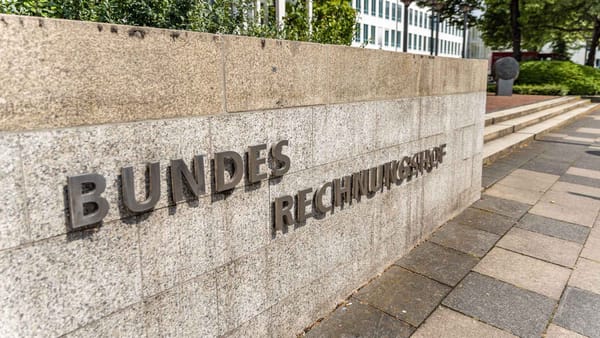Federal Court of Audit Wades Into the Funding Debate and is Criticised by game




In a "final audit report", the Federal Court of Audit has criticised the way in which federal funding for games is handled in Germany. Although the criticism is primarily aimed at the previous government's concept of funding, it also concerns the creation of a new funding guideline. Criticism comes from game: the Federal Court of Auditors fails to recognise the global market reality.
The criticism is fierce: in a "Abschließenden Mitteilung an das Bundesministerium für Wirtschaft und Klimaschutz (BMWK)" (Final Communication to the Federal Ministry of Economic Affairs and Climate Action), the Bundesrechnungshof (Federal Court of Audit) has summarised numerous points of criticism against the funding of computer game development at federal level.
In its communication, the Bundesrechnungshof demands, for example, that the federal government explain its funding competence, since (sole) economic funding is the responsibility of the federal states. In addition to this fundamental doubt about responsibility, the Bundesrechnungshof criticises numerous points in the design of the funding. However, this primarely concerns the funding guideline, which was created by the previous government in 2019. At the time, another ministry was responsible. For example, applications are considered in the order in which they are received and the maximum possible funding quota is often paid out without, in the opinion of the Bundesrechnungshof, sufficient checks being made to determine whether the applicant could make a higher contribution themselves. The Bundesrechnungshof also doubts that the required cultural test has always been met due to a "generous interpretation".
The example of the "economic feasibility study" shows how much of the current criticism can be traced back to the implementation by the then Ministry of Transport. The study presented in 2019 is literally being dismantled by the Bundesrechnungshof. Although it contains the prescribed content, it does not go into sufficient detail, the Federal Court of Audit says.
Although the Bundesrechnungshof is primarily concerned with past omissions and actions, this does not mean that the BMWK is off the hook. On the contrary, the Bundesrechnungshof has made numerous demands that the BMWK must fulfil if it is to continue the games funding. Therefore it was not without reason that the current government commissioned an external organisation, PricewaterhouseCoopers, to evaluate the funding.
The report also makes it clear why progress on the funding guidelines is currently so slow: many of the points criticised by the Bundesrechnungshof may require some fundamental corrections to the concept of games funding at federal level in Germany. For example, the dilemma of responsibility for "economic funding" could be resolved by reassigning games funding to the Beauftragte der Bundesregierung für Kultur und Medien (Federal Government Commissioner for Culture and the Media), which is also responsible for film funding in Germany. Interestingly, the issue of tax breaks has long been discussed in the area of film funding.
game - The German Games Industry Association is understandably unhappy about the criticism from the Bundesrechnungshof which will make the resumption of federal games funding even more difficult. In a statement, it once again summarises the policy failures that have caused Germany to lag behind in gaming business, the leading digital medium of this century, and why it needs to catch up. It also accuses the Bundesrechnungshof of failing to recognise the reality of the international market. Felix Falk, Managing Director of game, commented:
"The criticism of the German Federal Court of Auditors regarding the promotion of games at federal level unfortunately completely ignores the decisive factors and fails to recognise the objectives of the measure: Games are now the defining medium of global culture and one of the most dynamic media markets of all. Due to the one-sided focus on the feared dangers of games in the 1990s and early 2000s, Germany almost completely missed out on the potential of games and did not ensure growth like other locations with good production conditions. This led to disadvantages in international competition that are still having a negative impact today. We can only make up for this deficit with internationally competitive games funding if we want to help shape this important future market and not just watch it from the sidelines. This international comparability is the goal, and the evaluation of games funding by the Federal Ministry of Economics has clearly shown that Germany is on the right track. This must now be consistently pursued with an expansion of federal funding and competitive funding guidelines. Successful host cities around the world show us the way: Internationally competitive conditions cannot be created without predictable and reliable funding for the games. This is why it has been part of the Federal Government's Games strategy for years. The Federal Government must continue to consistently pursue this strategy, contrary to the opinion of the Bundesrechnungshof, which completely fails to recognise the global market reality".
Never miss anything from the German, Swiss and Austrian games industry again: subscribe for free to our Daily newsletter and get all news straight to your inbox.








